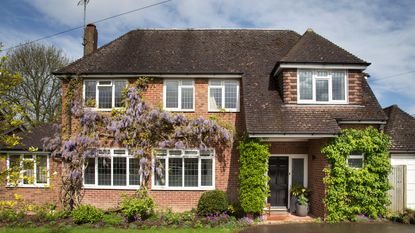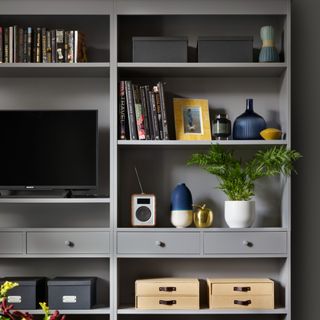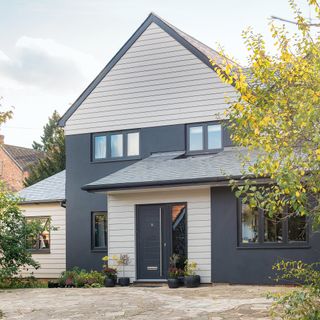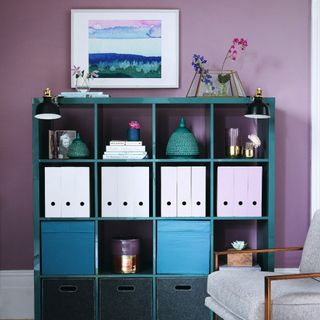
When you purchase through links on our site, we may earn an affiliate commission. Here’s how it works.

When it comes to managing household finances, it's easy to see why you might think some insurances are dispensable. When buying a house you may be unsure about the associated expenses, and ask yourself, 'do I need home insurance?', especially if you're looking to save money on any 'unnecessary' expenditures.
But before you decide to give any form of insurances a miss, it’s important to understand which ones will actually make you financially stronger, and the ones you can do without. We ask experts to qualify the home insurance policies everyone should have.
How many times have you thought, 'I could save money by not taking out insurance. but do I need it?' When it comes to home insurance the answer depends on which type of home insurance – buildings insurance or contents insurance.

'If you’re a homeowner, legally you need buildings insurance as a condition of your mortgage,' advises finance expert Kalpana Fitzpatrick. 'Contents insurance is optional. But before you decide to forgo contents insurance, consider how much it would cost to replace your possessions if there was a theft, fire or even accidental damage.'
Contents insurance covers the cost of the belongings in your home, such as sofas and TVs etc. Having contents insurance means that should any accidental damage occur or a you're the victim of a burglary, your possessions are covered by the insurance policy in place. While not having to pay a contents insurance premium can save you money, it might cost a whole lot more in the long run should any of the above occur.
'One in four households do not have home contents insurance, leaving them at risk should they find themselves replacing high cost goods*,' says Kalpana. 'If you’re renting, then it’s still important to protect your possessions with contents insurance, although you will not need building insurance – that's the landlord’s responsibility.'
*According to the Association of British Insurers
Sign up to our newsletter for style and decor inspiration, house makeovers, project advice and more.
By submitting your information you agree to the Terms & Conditions and Privacy Policy and are aged 16 or over.

Where you live will determine if it's bad not to have home insurance in place. For instance Lizzie Schulz, Solicitor at Ashfords, explains; 'If you own a freehold property, buildings insurance isn’t a legal requirement. But it will usually be required by a mortgage lender on purchase.'
'If you don’t have a mortgage, then it’s usually up to you whether you have buildings insurance. In any event, you are responsible for any repairs to the property that aren’t covered by insurance.'
'If you own a leasehold property (a common arrangement for flats), the responsibility to insure can vary,' continues Lizzie. 'Your insuring obligations are set out in your lease, and you should seek advice if you are unsure.'
'Usually, the landlord is responsible for repairing and insuring the structure. And the cost is distributed to the leaseholders by way of service charge. However, it is also common for a leaseholder to repair and insure parts of the building that are their legal responsibility. Whilst the landlord covers the communal parts of the building.' This refers to buildings home insurance, rather than contents home insurance.
'There is no requirement for a landlord to insure the building that is rented to tenants,' Lizzie explains. 'However, it is a common for a tenancy agreement to require that the landlord insures the building. Whether insurance is in place or not, landlords are legally required to repair any damage and keep the property in a reasonable condition at all times.'

There are a few golden rules to follow when it comes to any form of insurance. 'Always be honest when buying insurance, otherwise your policy could be invalidated,' advises finance expert Kalpana.
'The cheapest policy may not always be the best one for you. Make sure you buy the right level of cover for your needs,' she goes on to suggest. Check the excess amounts on your policy to ensure you are paying the right amount for what you can afford, and for what your insurance is in place to cover.
'You can buy insurance policies using comparison sites, but it is also worth getting direct quotes for the best price. For insurance like car and home, note down the expiry date and shop around for a new deal before it ends. As auto-renewal prices are not always the best.'
'If you are buying or renting a property, your solicitor is qualified to advise you on your insurance obligations,' explains solicitor Lizzie. 'They can direct you to reputable insurance brokers to get you started.'